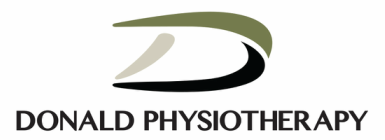
Though the course has equipped us with increased problem-solving skills to assist our well-deserving pregnant and postpartum moms to achieve their sport specific fitness goals, including Cross-Fit and running, the underlying principles can be effectively applied to empower ALL of our client populations to reach their full potential. And thankfully so!
As I find myself surrounded by peers of a different age cohort, as I continue to learn and grow, I realize that these new concepts are just as applicable to where I am at in life. I am at the stage of accepting menopause, and all its glorious hormone related changes that can affect us as we mature. Thank God for research and support, as we continue to challenge ourselves beyond previously held beliefs to grow through discomfort, to a place of acceptance and positive change.
As we age and go through life’s cyclical changes, we ALL develop strategies. Whether internally imposed or resulting from external sources, we all develop alignment, breathing and movement strategies and beliefs that allow us to function to the best of our known ability. Repeated regularly these strategies can subconsciously become our “go to” that will either allow our bodies to operate efficiently or afford us unexpected signs and symptoms as we progress through life. And I am no exception when it comes to some much-needed work in that department. These strategies can become so imbedded in us that they are often difficult to recognize without looking at them from a different lens, or from what Julie Wiebe might call, a new set of eyes.
As physiotherapists our role is to provide you with that new set of eyes as we assess and establish what your strategies are, and where your current limits lie. We will explore with you what you value most and build upon your current successes, with the aim that through education and support we can empower you to progress safely toward achieving your current and future goals.
Through neuromuscular retraining strategies we can work with you to:
**Optimize the alignment of your pelvis, as Lindsay mentions in Donald Physiotherapy’s recent Facebook post where she discusses the importance of addressing the postpartum “mom bum,” to gain better access to the pelvic floor muscles. Muscles that she so clearly explains are important for more than just improved continence.
**Optimize your breathing strategy, to allow for improved access to your diaphragm, not only as an efficient respiratory muscle for oxygen exchange, but also as a muscle important in central or core stabilization and posture control. In fact, the diaphragm, when trained to be used effectively also helps:
- maintain mobility in your ribs as well as your upper and lower back
- aid circulation
- restore balance
- improve gastro-intestinal function which aids in reducing constipation
- regulate intra-abdominal pressure to help absorb impact during WB activities, as well as
- balance your sympathetic and parasympathetic nervous systems, assisting to regulate heart rate and emotional response
- stabilizing and controlling the spine, allowing for simultaneous functional movement to perform tasks like lifting and carrying safely, and
- the management of diastasis rectus, that enables for maintenance and restoration of the strength and control necessary to return to functional meaningful tasks and performance goals in a timely manner.
From perhaps well-intended verbal cues of “tighten your tummy” to less well-intended visual cues in fitness magazines that promote perpetually flat abs, what one may have thought back then is not what we know right now. What it comes down to is really getting to know, appreciate and listen to what your body is telling you so that it can continue to serve you well into the future. Come and ask us about the benefits of neuromuscular retraining strategies and let us show you how using central control as a foundation for ALL your performance fitness and wellness goals can benefit you and your family. Our commitment to growing in knowledge transfers into our commitment to serving you.
~ Elizabeth - Physiotherapist
References:
www.juliewiebe.com
https://www.facebook.com/DonaldPhysiotherapy/posts/3045234788890061

 RSS Feed
RSS Feed